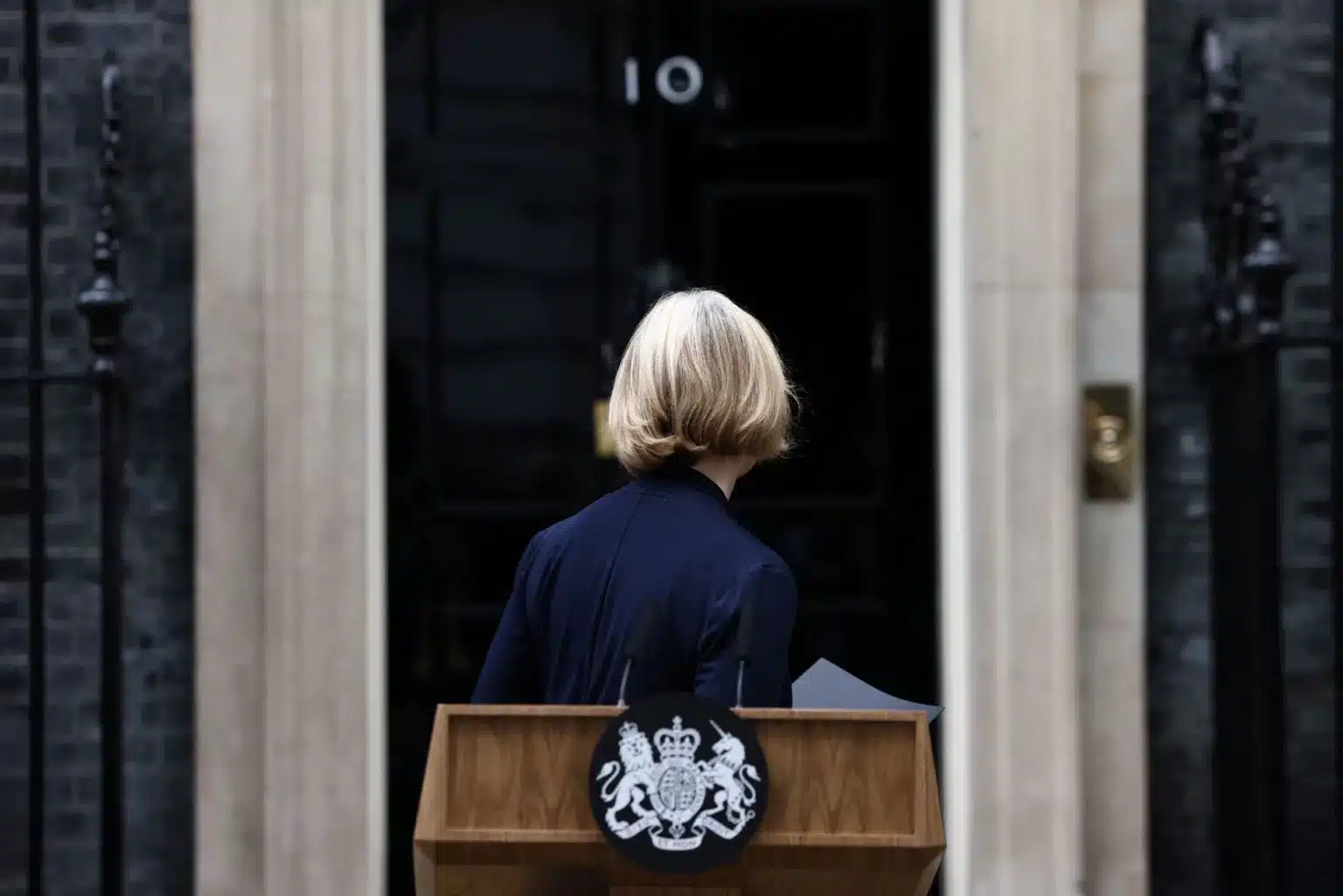After six crisis-filled weeks in office, British Prime Minister Liz Truss announced her resignation on Thursday. She was the country’s shortest-serving leader in history.

Addressing the ongoing, and yet-to-come unrest, Truss said, “During this period of significant economic and global turmoil. Both businesses and family members are concerned about how to pay their bills. Putin’s unlawful war in Ukraine threatens the entire continent, and our nation has been suffering from slow economic growth for too long.”
Taking up the responsibility of not being able to deliver upon the trusted responsibilities, the outgoing prime minister said, “the conservative party chose me with the intention of changing the situation. We succeeded in reducing national insurance costs and energy costs. We outlined a plan for a high-quality, low-tax economy that would benefit from Brexit’s liberties. I am unable to carry out the requested mandate in the current circumstances. As a result, I have informed His Majesty the King that I am stepping down as the head of the conservative party.“
Truss announced that she would continue in her position as prime minister until a replacement was found. She predicted that a leadership election would be finished in the following week. According to the in-charge official, the election to succeed Truss as Conservative Party leader should be held by October 28.
The start of a fresh leadership contest and the resignation speech of yet another unpopular prime minister in Downing Street serve as reminders of how tumultuous British politics have become since the 2016 Brexit decision.
Millions of people are struggling with a literal crisis as the economy is on the verge of recession and inflation is at a 40-year high.
After being chosen in September to lead the Conservative Party by its members—not by the general public—and with backing from only about a third of the party’s parliamentarians, Truss became Britain’s fourth prime minister in six years. Deregulation, cutting taxes financed by borrowing, and a firm turn to the right on socio-cultural matters were among her leading campaign pledges.
Who is next in line?
The expected yet sudden resignation by the Prime Minister has given the Twitterverse another burning issue to mock about. The official handle of the Ukraine government posted a mock-up from the series “Better Call Saul”, endorsing Borris Jhonson.

Rishi Sunak
Former UK chancellor of the exchequer and recent runners-up for 10 Downing Street. He was quite the favorite as he was the Tory side’s leader, but he ultimately lost. Sunak now has the highest chance of succeeding and becoming the next prime minister.
Jeremy Hunt
He is a seasoned minister who has served as both the health and cultural secretary of the UK. In 2018, he was defeated by Boris Johnson. He might recover and astonish us all.
Penny Mordaunt
The leader of the commons and Truss’ internal counterpart. Mordaunt is a trusted member of the conservative party and stands a strong chance to make office amidst the ongoing tussle.
Ben Wallace
Wallace, the nation’s current defense secretary, was chosen by Boris Johnson in 2019 and has been in the position ever since. Wallace has witnessed a number of PMs come and go. He should serve as prime minister, according to a majority of Tory MPs.
Way Forward
Truss’s tenure in the office of PM has been nothing but chaotic, representing the UK’s current situation. Truss will go down in history as the prime minister with the shortest term, surpassing George Canning, who had served in that capacity for 119 days until passing away in 1827.
The guidelines for the competition have been established by Graham Brady, chair of the Conservative Party’s 1922 Committee. The results will be known by October 28.













